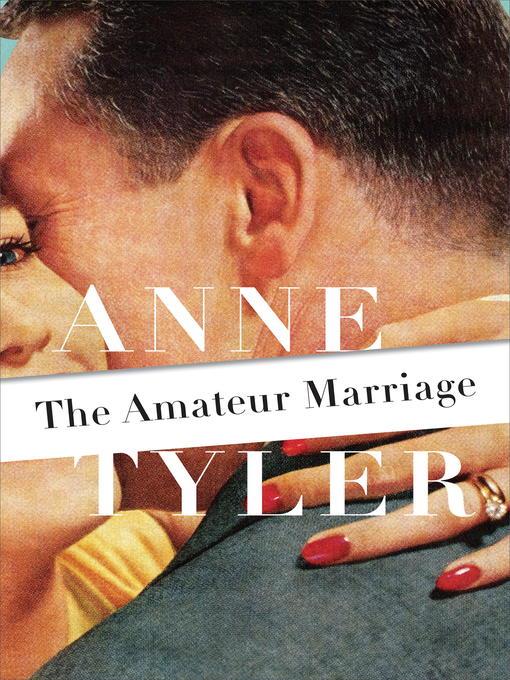
The Amateur Marriage
فرمت کتاب
ebook
تاریخ انتشار
2015
Reading Level
4
ATOS
5.8
Interest Level
9-12(UG)
نویسنده
Anne Tylerناشر
Penguin Canadaشابک
9780143196310
کتاب های مرتبط
- اطلاعات
- نقد و بررسی
- دیدگاه کاربران
نقد و بررسی

Starred review from December 22, 2003
Because Tyler writes with scrupulous accuracy about muddled, unglamorous suburbanites, it is easy to underestimate her as a sort of Pyrex realist. Yes, Tyler intuitively understands the middle class's Norman Rockwell ideal, but she doesn't share it; rather, she has a masterful ability to make it bleed. Her latest novel delineates, in careful strokes, the 30-year marriage of Michael Anton and Pauline Barclay, and its dissolution. In December 1941 in St. Cassians, a mainly Eastern European conclave in Baltimore, 20-year-old Michael meets Pauline and is immediately smitten. They marry after Michael is discharged from the army, but their temperaments don't mix. For Michael, self-control is the greatest of virtues; for Pauline, expression is what makes us human. She is compulsively friendly, a bad hider of emotions, selfish in her generosity ("my homeless man") and generous in her selfishness. At Pauline's urging, the two move to the suburbs, where they raise three children, George, Karen and Lindy. Lindy runs away in 1960 and never comes back—although in 1968, Pauline and Michael retrieve Pagan, Lindy's three-year-old, from her San Francisco landlady while Lindy detoxes in a rehab community that her parents aren't allowed to enter. Michael and Pauline got married at a time when the common wisdom, expressed by Pauline's mother, was that "marriages were like fruit trees.... Those trees with different kinds of branches grafted onto the trunks. After a time, they meld, they grow together, and... if you tried to separate them you would cause a fatal wound." They live into an era in which the accumulated incompatibilities of marriage end, logically, in divorce. For Michael, who leaves Pauline on their 30th anniversary, divorce is redemption. For Pauline, the divorce is, at first, a tragedy; gradually, separation becomes a habit. A lesser novelist would take moral sides, using this story to make a didactic point. Tyler is much more concerned with the fine art of human survival in changing circumstances. The range and power of this novel should not only please Tyler's immense readership but also awaken us to the collective excellency of her career.
(Jan.)
Forecast:
Expect the usual blockbuster sales—there will be a first printing of 300,000. This is also likely to become one of Tyler's strongest backlist titles.

August 1, 2003
Having wed too fast during World War II, the mismatched Pauline and Michael must put aside their differences to raise their grandson, neglected by his feckless teenaged mom in San Francisco. With a 300,000-copy first printing.
Copyright 2003 Library Journal, LLC Used with permission.

November 15, 2003
The attack on Pearl Harbor serves as the catalyst for Tyler's sixteenth novel by propelling Pauline, bleeding from a minor wound sustained in the fervor of a spontaneous patriotic parade, into the humble family grocery run by handsome and reserved young Michael and his embittered widow mother. An outsider to this tightly knit, Polish Catholic Baltimore neighborhood, Pauline is pretty, impulsive, and touchy, and although she and the far more deliberate and reticent Michael fall instantly in love, they are also immediately at odds. They marry precipitously, move into the cramped apartment above the store with his mother, rapidly produce three children, and consistently make each other miserable. Tyler's strength resides in her penetrating psychological portraits and delight in mundane details, and these gifts are evident in the novel's promising opening scenes. But the usually adept Tyler ends up setting 30 years of tedious marital unhappiness and domestic tragedy against a distressingly superficial and bland accounting of the rise of suburbia and the flowering of hippie culture. Her observations about how abruptly even the most boring life can go wrong, and about the fact that we are all amateurs in our first marriages, are poignant, however, and may be enough to satisfy readers who seek safe and comfy novels.(Reprinted with permission of Booklist, copyright 2003, American Library Association.)

























دیدگاه کاربران